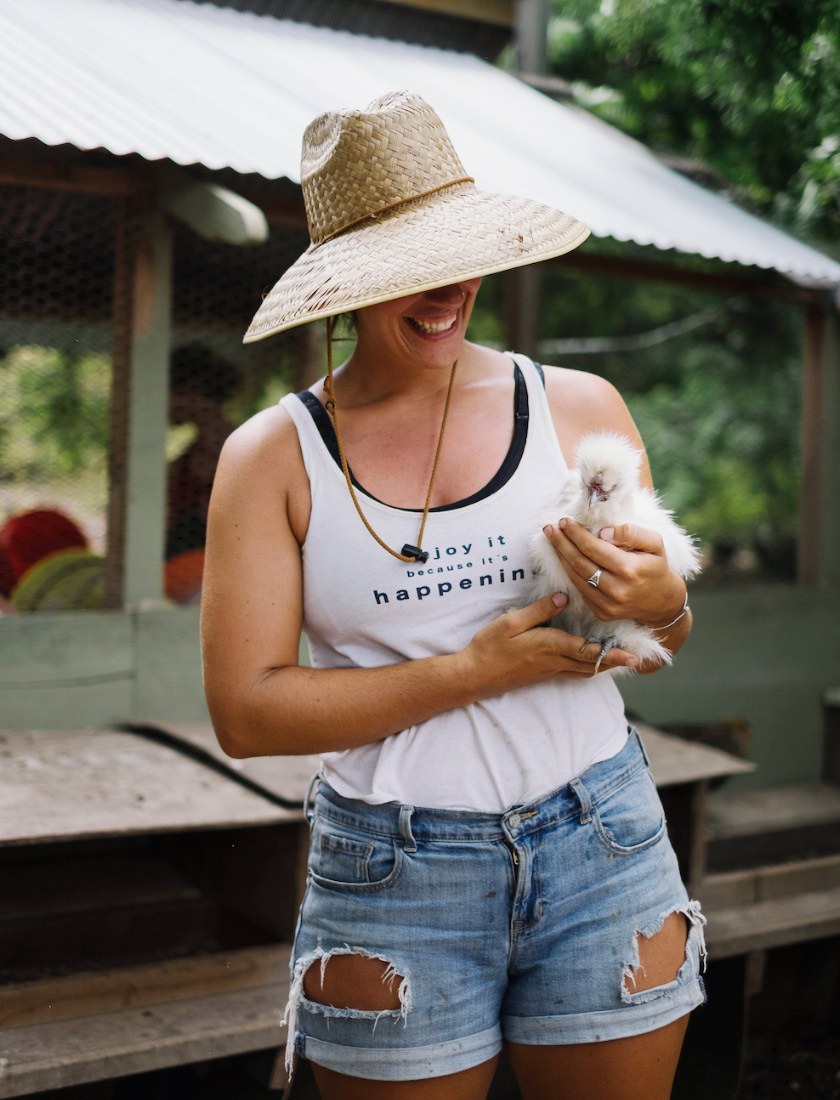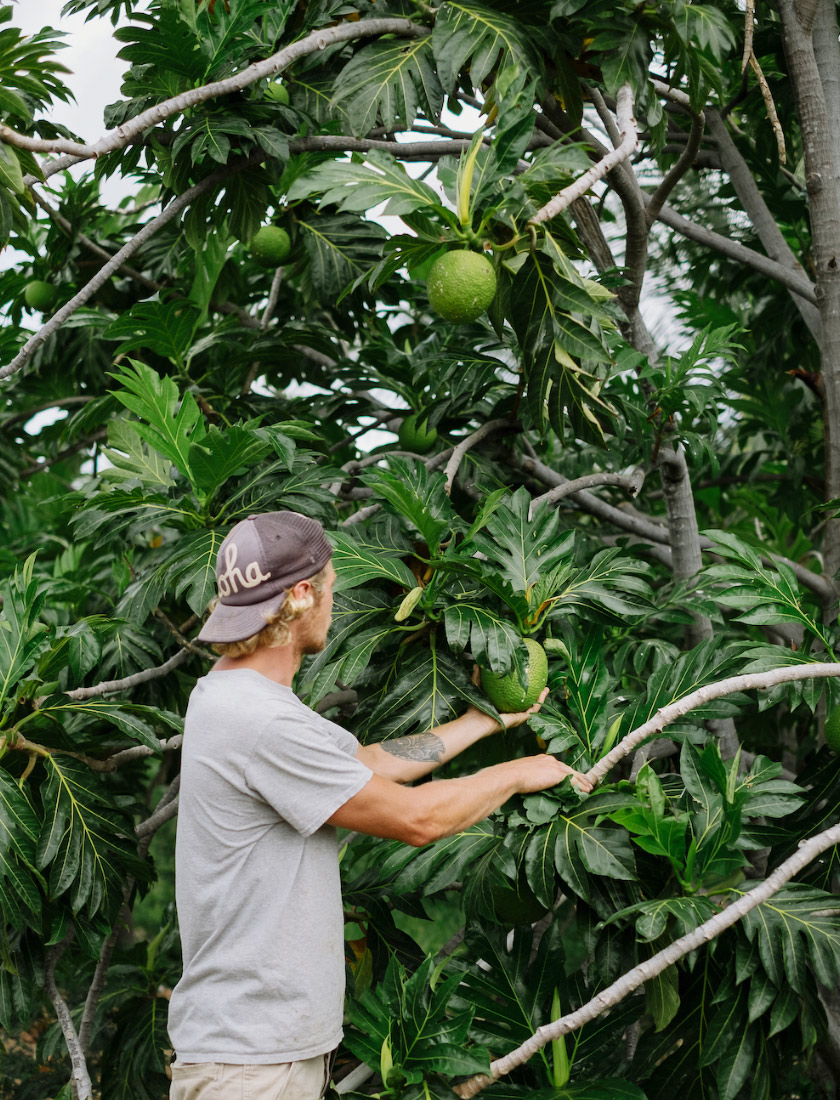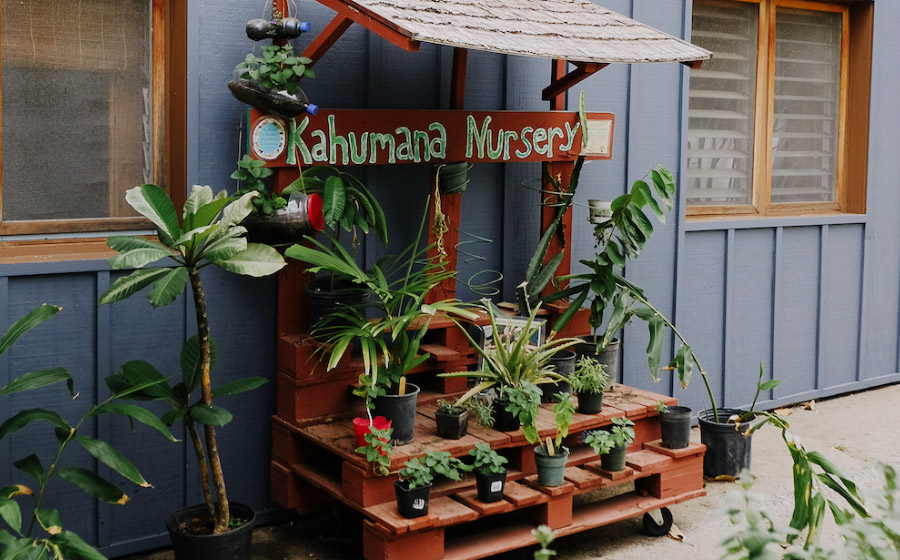On 50 acres in Lualualei Valley, Kahumana Organic Farm and Community grows more than just greens.
At Kahumana Organic Farm, which is hidden within Lualualei Valley at the base of Mount Ka‘ala, monkeypod and mango trees tower over buildings alongside fields of produce, an aquaponics system, and quiet, lush areas marked by small temples. Rachel LaDrig, Kahumana’s manager of agritourism, guides me through the farm’s grounds and explains the decades-old ethos behind its name: Those who contribute to Kahumana are “kahu,” or guardians, nurturing “mana,” the spirit and soil.

Founded in 1974 as a holistic place to help adults with special needs, the nonprofit Kahumana has expanded to include 50 acres in the leeward valley where it hosts a variety of services for the community, including its organic farm, as well as a café, transitional housing, a retreat, a learning center for adults with intellectual disabilities or autism, and a commercial kitchen. “Part of the mission is to serve a holistic, farm-based, community approach to healing,” LaDrig says. “The way we care for the most vulnerable members of our society determines our mark as a people and a nation.”
Despite its hidden location, Kahumana opens its land to the community through guided tours, annual seed exchanges and festivals, and the Farm Hub, at which Kahumana buys excess produce from Waiʻanae residents. The farm also produces bountiful harvests of kale, collards, fennel, and parsley—favored by upscale O‘ahu restaurants like Roy’s and Monkeypod Kitchen. As we walk by a small plot set aside for salad mix, LaDrig points out the farm’s Organic Keiki Greens, popular with such restaurants. She shares a dragon fruit, picked from an adjacent cactus, and explains the farm’s use of cover crops, which aid in protecting unused soil, and trap crops, which distract pests.

In addition to promoting food sustainability, the farm serves groups from all walks of life: Interns tend to the farm acreage while learning about time management and meal preparation; adults from the nearby Kahumana Learning Center pitch in at the market store; and residents living at one of Kahumana’s two transitional housing programs work in the farm’s café, serving dishes made with produce sourced just a stone’s throw away.
These programs, Ohana Ola O Kahumana and Ulu Ke Kukui, support O‘ahu’s struggling families, the majority of which are from the Waiʻanae Coast, by providing transitional housing and wraparound services. “You don’t just hand someone a house and their problem is solved,” LaDrig says, noting that the residents at the facilities can also take part in workshops for resume writing, money management, and computer training. Some stay on with Kahumana afterward, working at homesteads that are rented out for retreats, in the café, or on the farm.

“There is so much growth happening all the time here,” LaDrig says, noting that the Organic Keiki Greens are thriving and will soon be ready for harvest. “This is a model for a healthy community and healthy relationships, between food and people.”
For more information, visit kahumana.org.
